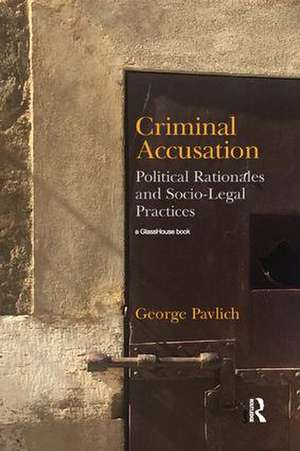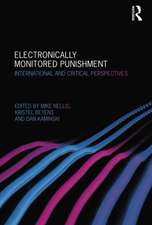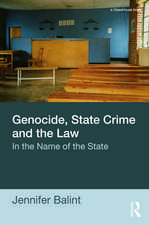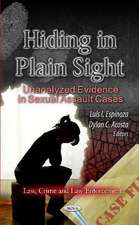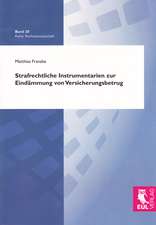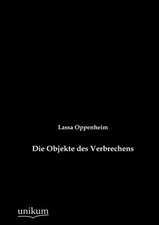Criminal Accusation: Political Rationales and Socio-Legal Practices
Autor George Pavlichen Limba Engleză Paperback – 3 ian 2019
| Toate formatele și edițiile | Preț | Express |
|---|---|---|
| Paperback (1) | 417.20 lei 6-8 săpt. | |
| Taylor & Francis – 3 ian 2019 | 417.20 lei 6-8 săpt. | |
| Hardback (1) | 1000.27 lei 6-8 săpt. | |
| Taylor & Francis – 11 dec 2017 | 1000.27 lei 6-8 săpt. |
Preț: 417.20 lei
Nou
Puncte Express: 626
Preț estimativ în valută:
79.83€ • 83.52$ • 66.32£
79.83€ • 83.52$ • 66.32£
Carte tipărită la comandă
Livrare economică 02-16 aprilie
Preluare comenzi: 021 569.72.76
Specificații
ISBN-13: 9780367185633
ISBN-10: 0367185636
Pagini: 247
Dimensiuni: 156 x 234 x 13 mm
Greutate: 0.48 kg
Ediția:1
Editura: Taylor & Francis
Colecția Routledge
Locul publicării:Oxford, United Kingdom
ISBN-10: 0367185636
Pagini: 247
Dimensiuni: 156 x 234 x 13 mm
Greutate: 0.48 kg
Ediția:1
Editura: Taylor & Francis
Colecția Routledge
Locul publicării:Oxford, United Kingdom
Cuprins
PrefaceIntroduction
Acknowledgements
1 Accusation: Landscapes of Exclusion
2 Apparatuses of Criminal Accusation
3 Avowal and Criminal Accusation
4 The Violent Rhetoric of Accusation: Cicero and the Marcus Ameleus Scaurus Case
5 Cultural Grammars of Accusation: Thomas of Monmouth’s Blood Libel Accusations
6 Creating Crime: Accusatory Entryways to Criminal Justice
7 The Lore of Criminal Accusation
8 Criminal Justice and Cape Law’s Persons
9 Forget Crime: Accusation, Governance and Criminology
10 The Emergence of Habitual Criminals in Nineteenth-Century Britain: Implications for Criminology
11 The Subjects of Criminal Identification
Afterword
Index
Descriere
Accusing someone of committing a crime arrests everyday social relations and unfurls rituals that decide on who to admit to criminal justice networks. This book frames a socio-legal field directed to practices of accusation. The focus is the powers of an accusatory lore that creates subjects within the confines of legally authorized spaces.
